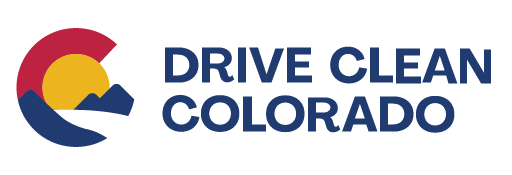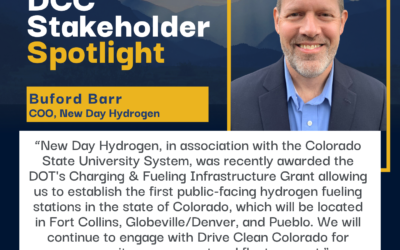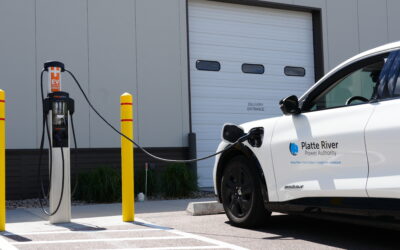Dear CDOT, CDPHE, and CEO,
On behalf of Drive Clean Colorado, we want to thank and commend the state and its staff on this vital work and the crucial actions already being taken to combat transportation emissions today. We also echo the invaluable perspectives of the organizations working tirelessly to clean our air and stabilize our climate, many of which are Drive Clean Colorado sponsors and stakeholders.
It is clear from the Colorado Medium- and Heavy-Duty (M/HD) Vehicle Study, the consequential benefits of the state moving swiftly to adopt the Advanced Clean Trucks (ACT) rule, including a fleet reporting requirement, and the Low NOx Omnibus regulation. These policies are foundational for moving towards state goals, environmental justice, and M/HD emission reductions, which clearly and inequitably impact low-income, communities of color. The Low NOx regulation will significantly help to address toxic air pollution in disproportionately-impacted communities, reducing nearly double the NOx emissions by 2050 than ACT alone.
Drive Clean Colorado additionally supports a complimentary suite of programs within the Clean Truck Strategy, including incentives that can be applied at the point-of-sale to reduce incremental vehicle costs. We also encourage the state to move beyond upfront incentives by considering a Low Carbon Fuel Standard to reduce the carbon intensity of all transportation fuels, while providing further reductions in total cost of ownership for clean fleets. This, while making certain to establish workforce solutions for truck drivers, smaller fleets, technicians, and other workers on the frontline to create and retain quality jobs in this urgent transition.
Drive Clean Colorado further sees an opportunity for the government to lead by example and our team will be working with the state and municipalities to accelerate this transition by providing fleet analyses and assistance with infrastructure planning and installation. We additionally emphasize the role of hydrogen and renewable fuels like recovered methane (RNG) and renewable propane for applications that may not suit battery electrification.
With alternative fuel vehicles weighing more than their internal combustion engine counterparts, we also propose the consideration of a weight exemption extension for on-road vehicles to help level the playing field for the transportation of goods in zero- and low-emission vehicles.
At the same time, the state must address legacy emissions today as this transition takes hold, via programs like anti-idling, low-emission zones, and meaningful support to reduce pollution from existing diesel and gas fleets, as well as to replace the oldest and worst polluting vehicles, particularly in overburdened communities. Regulations of transport refrigeration units (TRUs), which can be more easily electrified than M/HD vehicles, should be investigated, with a majority of TRUs currently powered by diesel and stationed in minority and low-income neighborhoods.
Thank you for the priceless work you do and the opportunity to comment on this critical strategy.
Sincerely,
Bonnie Trowbridge
Executive Director
Drive Clean Colorado






